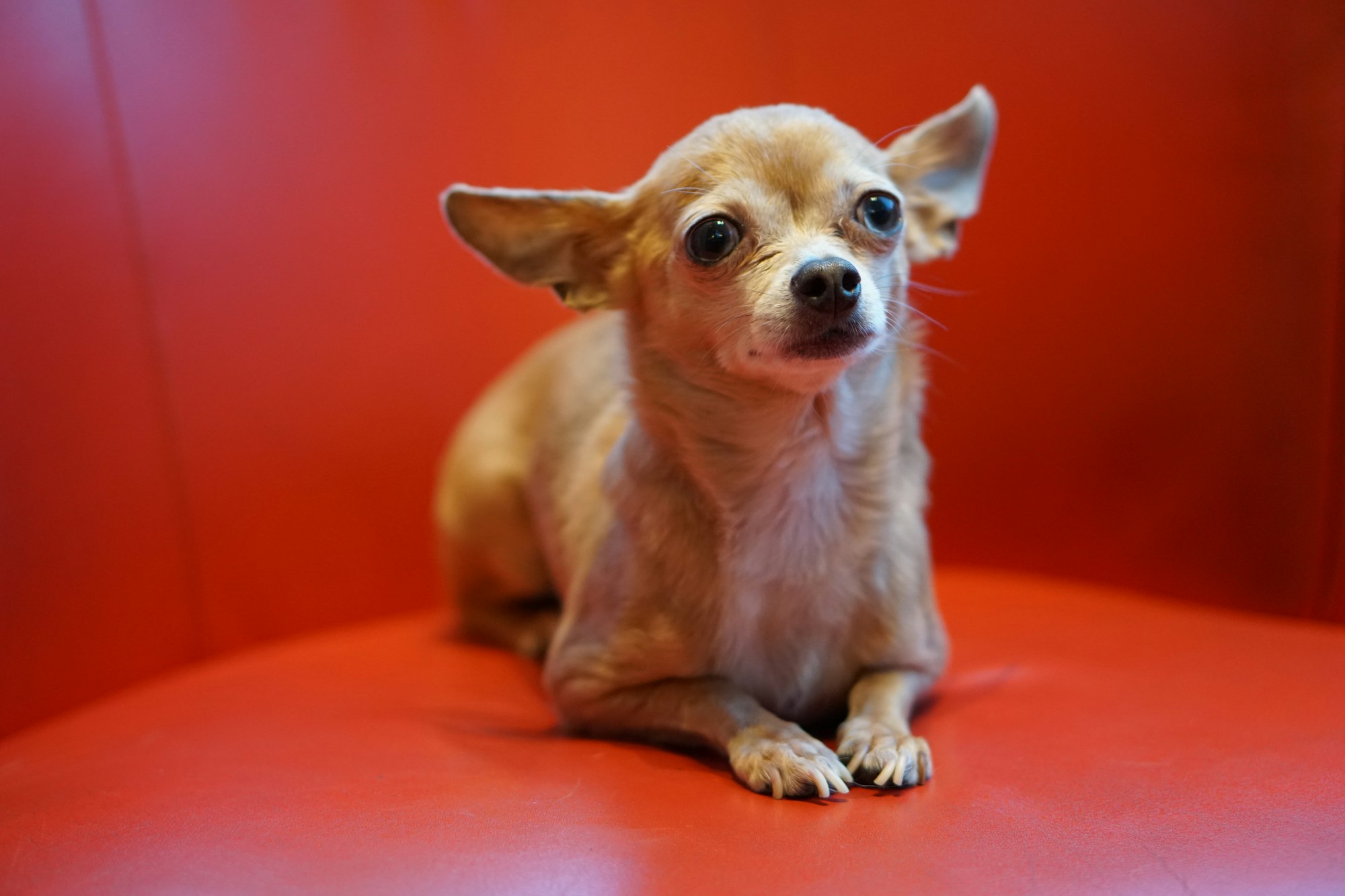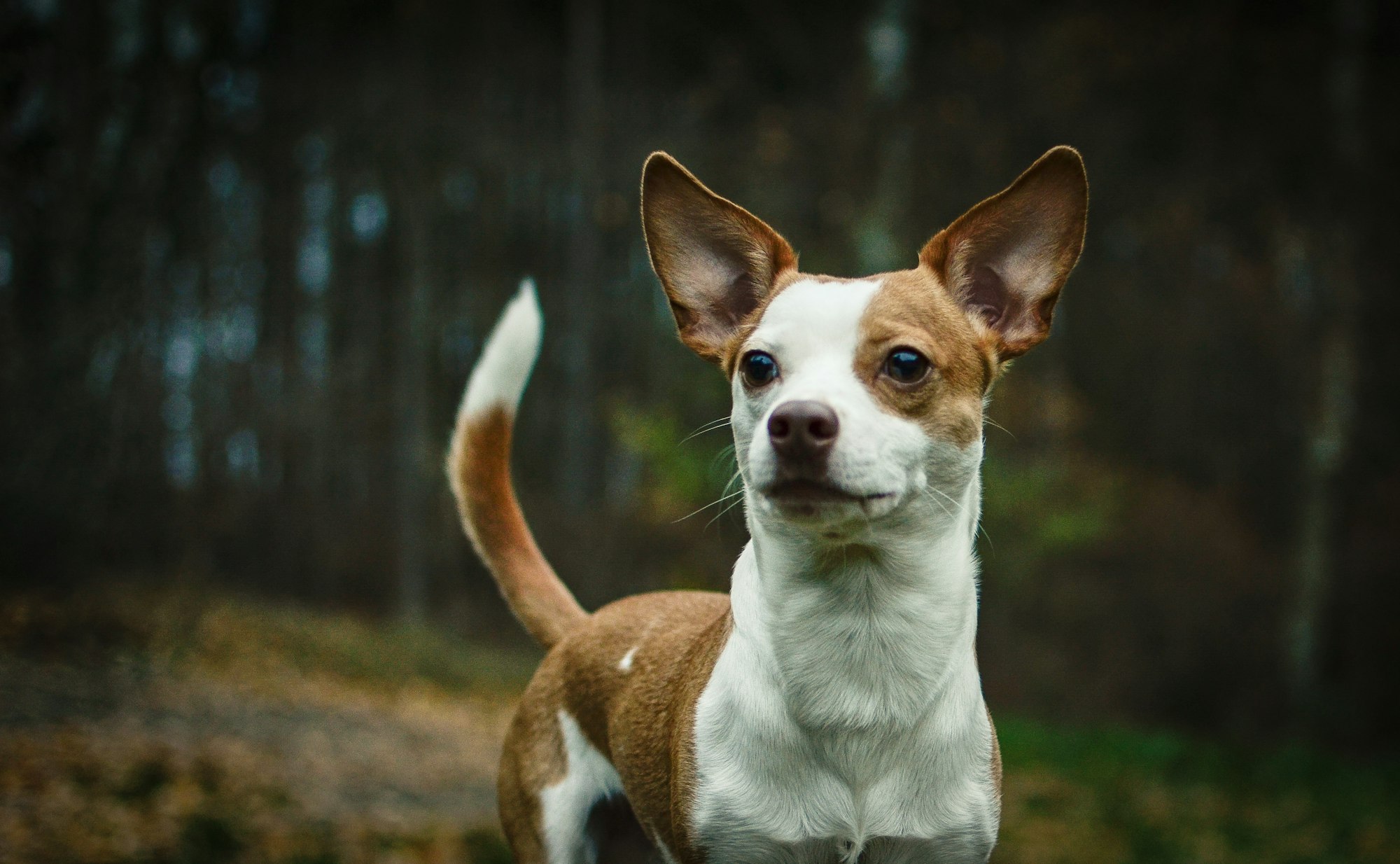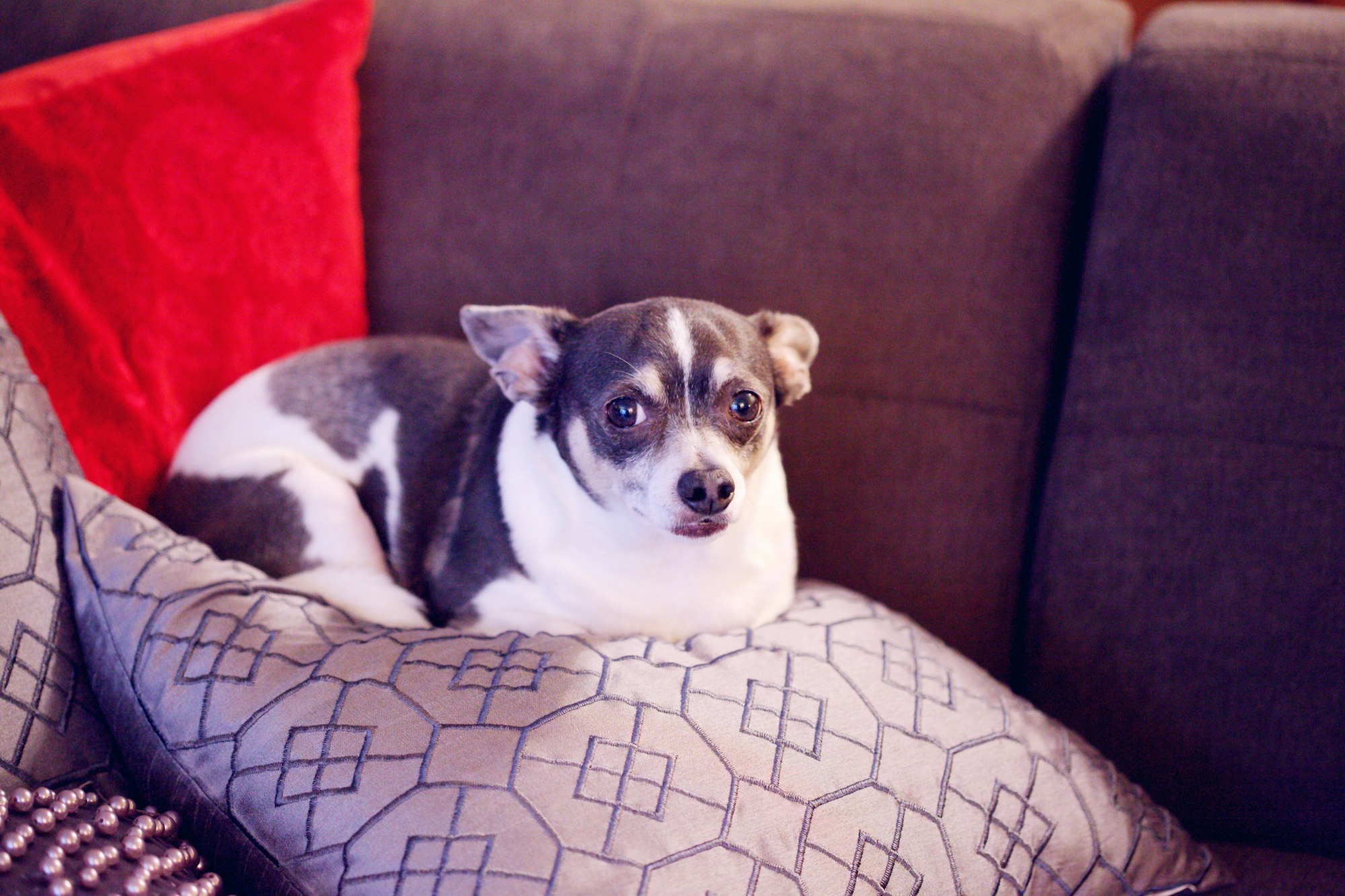Chihuahuas, with their tiny frames and big personalities, often find themselves at the center of debates regarding their aggression. In this article, we'll delve into the intricacies of Chihuahua behavior, exploring the root causes of aggression and providing insights into training techniques, common misconceptions, and preventive measures.

Chihuahuas, the pint-sized canines with an outsized personality, have earned a reputation for being aggressive. However, it's essential to unravel the myth surrounding their temperament and understand the factors that contribute to their behavior.
Understanding Chihuahua Behavior
Innate Traits of Chihuahuas
Despite their small stature, Chihuahuas are known for their boldness and independence. Understanding these innate traits is crucial in addressing their behavior effectively.
Socialization and its Impact
Proper socialization plays a pivotal role in shaping a Chihuahua's behavior. We'll explore how early exposure to different environments and experiences can contribute to a well-adjusted pet.
Factors Influencing Aggression
Various factors, such as genetics, environment, and past experiences, can influence a Chihuahua's propensity for aggression. We'll examine these factors in detail to provide a comprehensive understanding.
Challenges of Chihuahua Aggression
Small Dog Syndrome
The infamous "small dog syndrome" is a phenomenon often associated with Chihuahuas. We'll explore how this syndrome manifests and strategies to mitigate its effects.
Fear-Based Aggression
Chihuahuas, like any other breed, may exhibit aggression out of fear. Recognizing and addressing fear-based aggression is crucial for responsible ownership.
Territorial Behavior
Understanding a Chihuahua's territorial instincts can shed light on why they may display aggression in certain situations. We'll discuss how to manage and redirect this behavior.

Identifying Aggressive Behavior
Body Language Cues
Chihuahuas communicate largely through body language. We'll decipher the subtle cues that may indicate aggression, allowing owners to intervene promptly.
Vocalizations
Barks, growls, and other vocalizations can be indicators of a Chihuahua's emotional state. We'll explore the meanings behind these sounds and how to interpret them.
Situational Triggers
Certain situations may trigger aggressive behavior in Chihuahuas. Identifying these triggers is crucial for proactive management and training.
Training Techniques for Chihuahuas
Positive Reinforcement
Positive reinforcement is a cornerstone of effective Chihuahua training. We'll discuss how rewarding good behavior can lead to a well-behaved and happy pet.
Consistency in Commands
Consistency is key when training Chihuahuas. We'll provide practical tips on maintaining consistency in commands and expectations.
Professional Training Options
For owners facing challenges in training their Chihuahuas, seeking professional help can be invaluable. We'll explore various training options available.
Common Causes of Aggression
Lack of Proper Training
Inadequate training is a common factor contributing to Chihuahua aggression. We'll emphasize the importance of early and consistent training.
Medical Issues
Undiagnosed medical problems can manifest as aggression in Chihuahuas. Regular veterinary check-ups are essential for ruling out health-related causes.
Environmental Stressors
Chihuahuas may react aggressively to stressful environments. We'll discuss how to create a calm and secure home environment for your pet.
Myths about Chihuahua Aggression
Myth 1: Size Equals Aggression
Fact: Despite their small size, not all Chihuahuas are inherently aggressive. Aggression is influenced by various factors such as genetics, upbringing, and training.
Myth 2: All Chihuahuas Are Aggressive
Fact: Generalizing the behavior of an entire breed is unfair. While some Chihuahuas may display aggression, many others are affectionate and well-behaved with proper care and training.
Myth 3: Chihuahuas are Mean-Spirited
Fact: Chihuahuas, like any other dog breed, mirror the treatment they receive. Proper socialization, training, and love can bring out their sweet and loving nature.
Myth 4: Aggression is Inherent in the Breed
Fact: Aggression is not an inherent trait in Chihuahuas. With the right guidance, training, and a positive environment, Chihuahuas can be gentle and loving companions.
Myth 5: Aggressive Chihuahuas Cannot Be Trained
Fact: With patience and consistent training, even Chihuahuas displaying aggression can be trained. Positive reinforcement methods are particularly effective.
Myth 6: Chihuahuas Attack Without Warning
Fact: Chihuahuas, like all dogs, display warning signs before aggression. Understanding their body language can help prevent aggressive incidents.
Myth 7: Aggressive Chihuahuas Are Unlovable
Fact: Aggressive behavior does not diminish a Chihuahua's capacity for love. Addressing the aggression through proper channels can reveal their affectionate nature.
Myth 8: Aggressive Chihuahuas Can't Get Along With Other Pets
Fact: While some Chihuahuas may be selective in their interactions, proper socialization can help them coexist harmoniously with other pets.
Myth 9: Aggression is Always the Owner's Fault
Fact: While owner behavior can influence a dog's behavior, there are various factors, including genetics and past experiences, that contribute to aggression.

Myth 10: Neutering Always Eliminates Aggression
Fact: Neutering may help manage certain behaviors, but it's not a guaranteed solution for aggression. Training and addressing the root causes are equally important.
Myth 11: Aggressive Chihuahuas Cannot Be Trusted Around Children
Fact: With proper supervision, training, and positive interactions, Chihuahuas can form strong bonds with children and be trusted companions.
Myth 12: Aggression is an Irreversible Trait in Chihuahuas
Fact: Aggression can often be managed and even reversed with appropriate training, behavioral interventions, and a commitment to responsible ownership.
Myth 13: Chihuahuas are Aggressive Due to "Small Dog Syndrome"
Fact: While small dog syndrome is a recognized behavior, not all Chihuahuas exhibit it. Understanding and addressing individual behavioral issues is key.
Myth 14: Aggressive Chihuahuas Are Always Unpredictable
Fact: Aggressive behavior in Chihuahuas is often triggered by specific situations or stimuli. Recognizing and addressing these triggers can enhance predictability.
Myth 15: Aggressive Chihuahuas Should Be Avoided
Fact: With proper understanding, training, and care, aggressive tendencies in Chihuahuas can be managed, and they can make loving and loyal companions.
In dispelling these myths, we aim to foster a more accurate and positive perception of Chihuahuas, encouraging responsible ownership and a deeper understanding of their behavior.
Addressing Aggression Issues
Seeking Professional Help
When aggression issues persist, seeking professional guidance is crucial. We'll explore when and how to enlist the expertise of a dog behaviorist or trainer.
Home Environment Adjustments
Simple adjustments to the home environment can positively impact a Chihuahua's behavior. We'll provide practical tips for creating a harmonious living space.
Positive Interactions with Other Dogs
Encouraging positive interactions with other dogs is essential for a well-socialized Chihuahua. We'll discuss strategies for fostering healthy relationships.
Preventing Aggressive Behavior
Early Socialization
Early socialization sets the foundation for a well-adjusted Chihuahua. We'll provide a roadmap for introducing your pet to various people, environments, and situations.
Regular Exercise and Mental Stimulation
Adequate exercise and mental stimulation are key components of preventing boredom-related aggression. We'll outline practical ways to keep your Chihuahua engaged.
Health Factors and Aggression
Dental Problems
Undiagnosed dental issues can contribute to a Chihuahua's irritability. We'll stress the importance of dental care for overall well-being.
Pain as a Trigger
Pain, whether chronic or acute, can lead to aggressive behavior. We'll explore how to recognize signs of pain in Chihuahuas and address it effectively.
Regular Veterinary Check-ups
Regular veterinary check-ups are essential for identifying and addressing health issues that may manifest as aggression. We'll emphasize the importance of routine healthcare.
Positive Traits of Chihuahuas
Loyalty and Affection
Beyond their reputation for aggression, Chihuahuas are remarkably loyal and affectionate. We'll celebrate the positive traits that make them beloved companions.
Intelligence
Chihuahuas are intelligent dogs that respond well to training. We'll highlight how harnessing their intelligence positively influences behavior.
Adaptability
Chihuahuas are adaptable to various living situations. We'll explore how their adaptability can be an asset with the right guidance.

Chihuahua Aggression and Children
Chihuahuas, known for their petite size and big personalities, often find themselves in households with children. While they can form strong bonds with kids, it's crucial to navigate this dynamic with care to ensure a safe and positive environment for both the Chihuahua and the children.
Supervision and Education
When Chihuahuas and children coexist, diligent supervision is paramount. Young children may not fully comprehend appropriate interactions with happy dogs, and Chihuahuas, in turn, may react to sudden movements or loud noises. Always monitor their interactions closely, especially during initial introductions.
Educating children about respecting a Chihuahua's boundaries is equally important. Teach them not to disturb the dog while eating or sleeping and to approach gently. Instilling a sense of responsibility and empathy towards the Chihuahua's needs can contribute to a harmonious relationship.
Teaching Children to Respect Boundaries
Children may be naturally curious and eager to play with their furry companion. However, it's crucial to teach them that dogs, including Chihuahuas, have boundaries. Emphasize the importance of not pulling on the dog's ears or tail and avoiding sudden, loud gestures.
Encourage children to engage in calm and gentle interactions, such as petting the Chihuahua softly. By fostering a respectful relationship from an early age, you lay the foundation for a positive and enduring connection between the Chihuahua and the children.
Understanding Chihuahua Body Language
Chihuahuas communicate largely through body language, and it's essential for children to understand these cues. Teach them to recognize signs of stress, fear, or discomfort in the Chihuahua, such as flattened ears, a tucked tail, or growling. This understanding enables children to respond appropriately and avoid situations that may trigger separation anxiety in the dog.
Creating Safe Spaces for Both
Chihuahuas, like any dog, appreciate having a designated space where they can retreat when they need a break. Teach children to recognize when the Chihuahua seeks solitude and to respect their need for personal space. This not only reduces the likelihood of stress for the dog but also instills a sense of empathy in children.
Positive Interactions and Playtime
Facilitate positive interactions between Chihuahuas and children through supervised playtime. Incorporate activities that both parties enjoy, such as gentle petting, interactive dog toys, or short walks together. Reinforce positive behavior in both the Chihuahua and the children, creating a bond based on trust and mutual respect.
Addressing Fear or Aggression
In the event that a Chihuahua displays signs of fear or aggression, teach children to react calmly. Instruct them to stand still, avoid direct eye contact, and not to run away, as sudden movements may trigger a chase response. By understanding how to handle such situations, children contribute to a safer environment for everyone involved.

Incorporating Chihuahua Education
Educate children about the unique characteristics of Chihuahuas. Help them understand that these dogs may be more delicate than larger breeds and may have different comfort thresholds. This knowledge encourages a considerate approach, fostering a bond based on empathy and understanding.
Regular Vet Check-ups for Chihuahuas
Regular veterinary check-ups are essential for Chihuahuas to ensure they are in good health. Involve children in this process, explaining the importance of healthcare and creating a positive association with veterinary visits. This involvement not only educates children but also reinforces the idea of shared responsibility for the Chihuahua's well-being.
Conclusion
Chihuahuas can be wonderful companions for children when the relationship is approached with care, respect, and education. By combining supervision, positive interactions, and a mutual understanding of each other's boundaries, a harmonious connection can blossom, enriching the lives of both the Chihuahua and the children.
Key Takeaways from Case Studies:
- Individualized Approaches:
- Every Chihuahua is unique, and the causes of aggression vary. Tailoring interventions based on the specific triggers and behaviors of each dog is crucial for success.
- Consistency is Key:
- Both case studies highlight the importance of consistent training and reinforcement. Regular, positive interactions in controlled settings contribute to long-term behavioral improvements.
- Patience and Understanding:
- Rehabilitation requires time and patience. Understanding the root causes of aggression and approaching the process with empathy contributes to a positive outcome.
- Professional Guidance:
- In some cases, seeking professional help from a veterinarian or dog behaviorist can provide valuable insights and structured intervention plans tailored to the Chihuahua's needs.
These case studies emphasize that Chihuahua aggression, whether fear-based or territorial, can be effectively addressed through a combination of understanding, patience, and targeted training. By implementing personalized strategies and consistently reinforcing positive behavior, pet owners can navigate and successfully overcome the challenges associated with Chihuahua aggression.

Conclusion
In conclusion, understanding and addressing Chihuahua aggression requires a combination of knowledge, patience, and proactive training. By dispelling myths, implementing effective training techniques, and promoting responsible ownership, Chihuahuas can thrive as loving and well-behaved companions.
FAQs
- What causes Chihuahuas to be aggressive?
- Explore the various factors, including genetics and environment, that can contribute to Chihuahua aggression.
- Can aggression in Chihuahuas be completely eliminated?
- Discuss the potential for managing and mitigating aggression through proper training and responsible ownership.
- Are there specific breeds that Chihuahuas may not get along with?
- Provide insights into Chihuahua compatibility with other dog breeds and strategies for positive interactions.
- How can I socialize my Chihuahua effectively?
- Offer practical tips for introducing a Chihuahua to different environments, people, and animals for successful socialization.
- What should I do if my Chihuahua shows signs of aggression?
- Provide a step-by-step guide on addressing and managing aggression in Chihuahuas, including seeking professional help.




